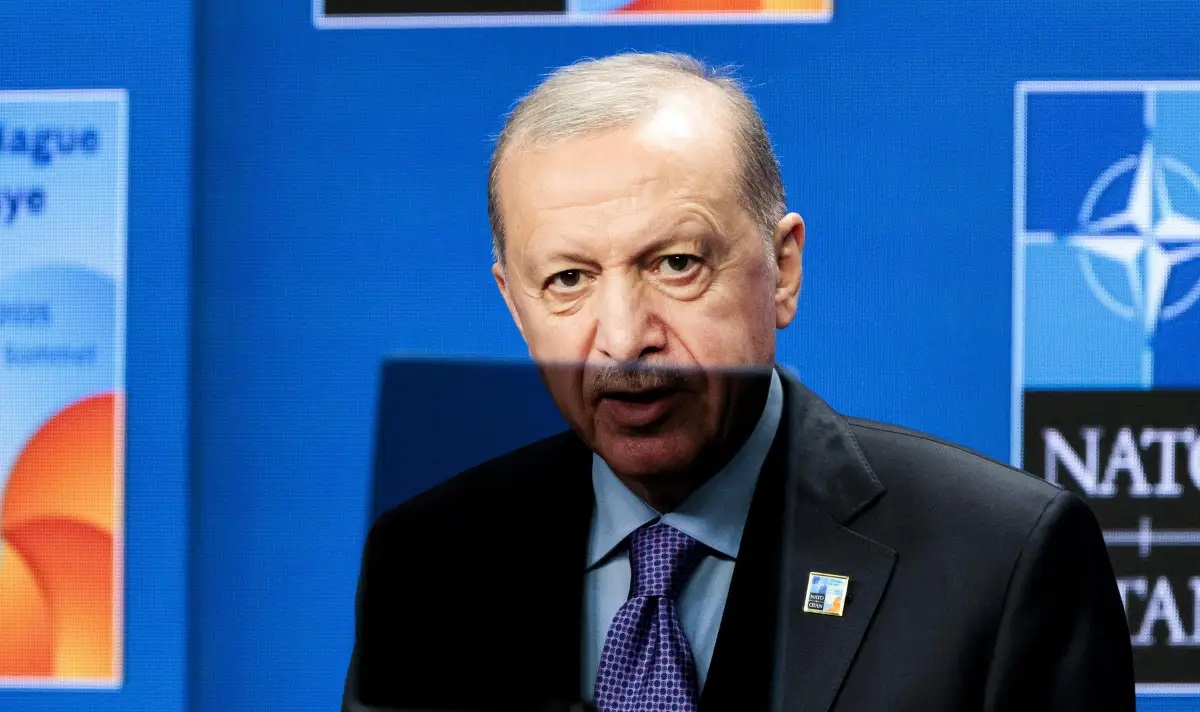Turkish President Recep Tayyip Erdogan draws parallels between the ongoing humanitarian crisis in Gaza and the 1995 Srebrenica massacre, emphasizing the international community's failure to learn from past atrocities. In a speech marking the 30th anniversary of Srebrenica, he calls for recognition of the genocide and accountability for the suffering in Gaza, highlighting the urgent need for justice.
Erdogan Compares Gaza Situation to Srebrenica Massacre, Urges Accountability


Erdogan Compares Gaza Situation to Srebrenica Massacre
In a poignant address marking the 30th anniversary of the Srebrenica massacre, Turkish President Recep Tayyip Erdogan drew parallels between the tragic events in Srebrenica and the ongoing humanitarian crisis in Gaza. His remarks, delivered in a video message, emphasized the lessons the international community has failed to learn from past atrocities, particularly the genocide that claimed the lives of over 8,000 Bosnian Muslim boys and men in 1995.
A Reflection on Srebrenica
The Srebrenica massacre, recognized as the only genocide in Europe after the Holocaust, remains a haunting chapter in recent history. The atrocities committed by the Army of Republika Srpska under the command of Radovan Karadžić and Ratko Mladić have been condemned by both national and international courts. Over 47 individuals have been convicted of crimes related to the massacre, receiving a combined total of more than 700 years in prison.
Erdogan's speech served as a reminder of the international community's responsibility to confront such horrors and hold perpetrators accountable. "For Turkey, all statements that deny the genocide in Srebrenica and glorify war criminals are completely unacceptable," he stated, underscoring the need for recognition and justice.
Gaza: A Modern Crisis
Erdogan's comparison between Srebrenica and Gaza is particularly striking in light of the current situation in the Palestinian territories. He lamented that "what is happening in Gaza today shows that the international community has not learned the necessary lessons from Srebrenica." The Turkish president criticized the perceived indifference of world leaders toward the plight of Palestinians, especially the suffering of over 57,000 children, women, and men affected by the ongoing conflict.
The humanitarian crisis in Gaza has escalated in recent years, with escalating violence, casualties, and widespread destruction. Erdogan's comments resonate with those who believe that the international community has failed to take adequate action to protect civilians and address the root causes of the conflict.
The Call for Accountability
Erdogan's assertion that "the Israeli administration will sooner or later take responsibility for the genocide it is committing" reflects his strong stance on the Israeli-Palestinian conflict. He has consistently criticized Israel's military actions and policies, framing them as violations of human rights and international law. The Turkish president's rhetoric emphasizes the need for accountability and justice for the victims in Gaza, drawing a direct line to the lessons of Srebrenica.
The ongoing violence in Gaza has led to countless civilian casualties, and Erdogan's statements highlight the urgency of addressing these humanitarian concerns. His call for recognition of suffering echoes the sentiments of many around the world who are advocating for peace and justice.
The International Community's Responsibility
Erdogan's remarks also serve as a critique of the international community's response to both historical and contemporary conflicts. He argued that the lack of decisive action against atrocities perpetuates a cycle of violence and suffering. "The world must learn from the mistakes of the past," he urged, highlighting the importance of proactive measures to prevent future genocides and protect vulnerable populations.
The failure to recognize and respond to humanitarian crises often leads to further escalation, as seen in both Srebrenica and Gaza. Erdogan's call for accountability is not just limited to Israel; it extends to the global community, urging nations to take a stand against injustice and support efforts for peace.
Historical Denial and Its Consequences
Erdogan's discourse also touches on the ongoing denial of the Srebrenica genocide by some factions within Bosnia and neighboring Serbia. Despite rulings from two UN tribunals affirming the classification of the massacre as genocide, there are still voices that refuse to acknowledge this dark chapter in history. This denial not only undermines the victims' memories but also poses a barrier to reconciliation and healing in the region.
The Bosnian civil war (1992-1995) left a lasting scar, resulting in the deaths of over 100,000 people and the displacement of millions. The lessons from this conflict, particularly regarding ethnic violence and the need for accountability, remain relevant today as conflicts persist in various forms around the globe.
Conclusion
President Erdogan's comparison of the situations in Gaza and Srebrenica serves as a powerful reminder of the need for vigilance against atrocities and the importance of accountability. As the world reflects on the Srebrenica massacre, it is crucial to recognize the ongoing suffering in Gaza and the necessity of learning from history to prevent future tragedies. The call for justice and recognition of past wrongs is not only a moral imperative but also vital for fostering a more peaceful and just world

 বাংলা
বাংলা  Spanish
Spanish  Arabic
Arabic  French
French  Chinese
Chinese 







